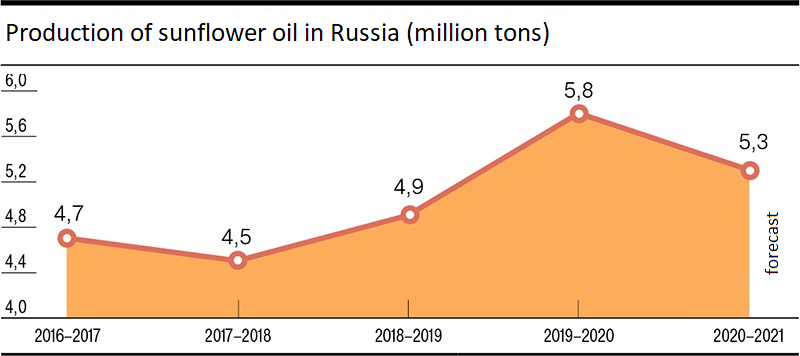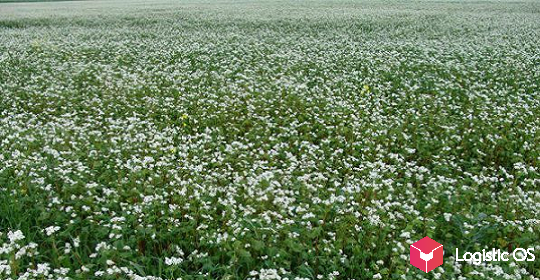Compared to November 2020, in December shipments of oilseeds and their products from Russian river and sea ports abroad decreased by 17%.
For example, 45 thousand tons of sunflower were exported (4 times less than in November), and 250 thousand tons of sunflower oil (-6%).
In the second half of December, prices for sunflower and sunflower oil in Russia fell sharply: by 17% and 7%, respectively.
The supply of sunflower on the market was sufficient, but the processors were in no hurry to buy it in anticipation of a lower price.
On December 10, Russian Prime Minister Mikhail Mishustin signed a decree on the introduction of export duties on sunflower and rapeseed from January 9 to June 30, 2021.
They will amount to 30% of the customs value of exported products, but not less than 165 euros per tonne (despite the fact that before that for sunflower the duty was 6.5%, not less than 9.75 euros per tonne, and for rapeseed it was generally zero).
Will duties help optimize the domestic market?
According to the head of SovEkon Andrey Sizov, the situation will only get worse.
First, at the end of last year we saw record prices for both sunflower (40 thousand rubles per ton) and oil from it (88 thousand rubles per ton).
Now the price of sunflower has dropped to about 33 thousand per ton, but this is still a very high level.
And secondly, no matter how the Russian government was worried about providing Russian butter makers with cheap raw materials, in fact they are still at a loss. Indeed, among other things, the Ministry of Economic Development has introduced the maximum cost of a liter bottle of sunflower oil: 95 rubles wholesale, 110 rubles retail.
What’s the bottom line? Butter-makers who bought an unrealistically expensive sunflower at 40 thousand rubles per ton have no idea what to do with the oil produced from it. After all, if you send it to store shelves, then you will be able to bail out no more than a hundred rubles per liter. and this is an unprofitable level.
If sent for export, then the prices there are higher (up to $ 1250 per ton, which is more than 90 thousand rubles), but the third part will have to be paid as a duty. However, it is still obvious that this is a more profitable option.
The result may also be that in the season of 2020 (which for buttermakers ends in June 2021), the production of vegetable oil may decrease by up to 10% compared to the previous period and amount to no more than 5 million tons per season.
And if the government of the Russian Federation does not intend to abandon fixed oil prices in the near future, then there are high risks of banal closure of a large number of industrial enterprises.


